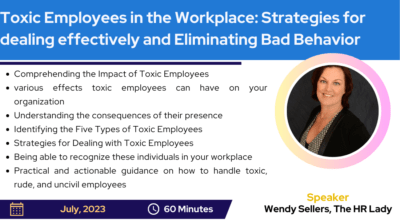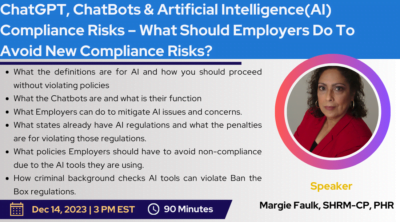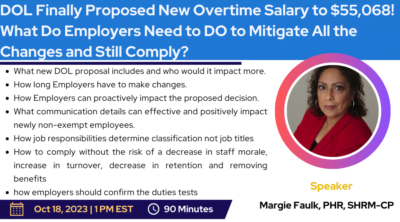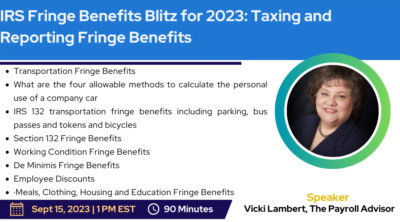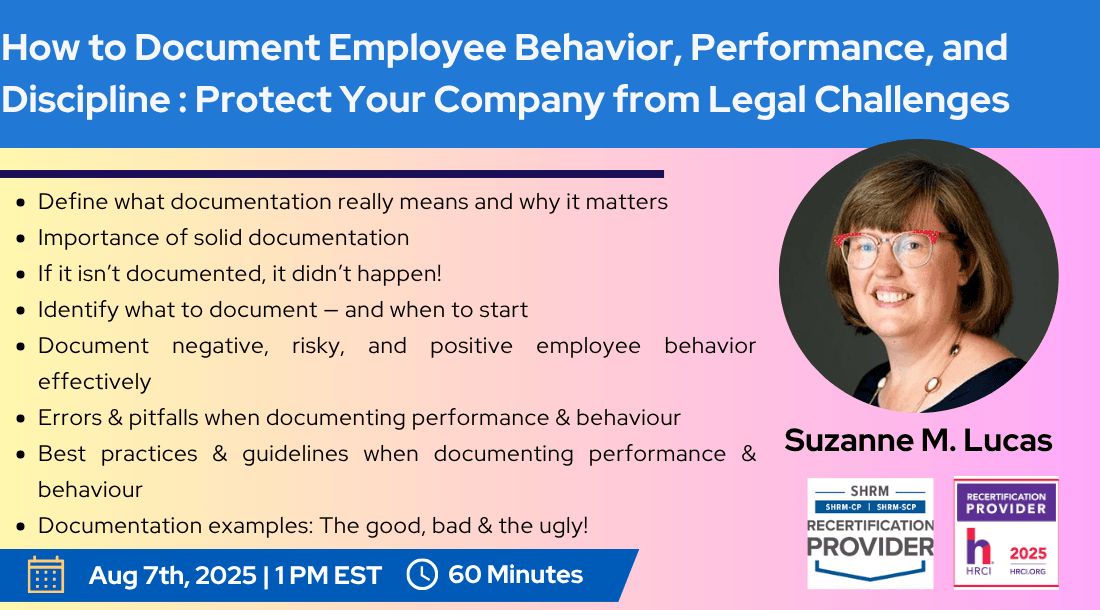Description
SHRM & HRCI Approved Webinar | CEUs = 1.0 Credit Hours
Overview:
DO you think “just write it down” is enough? Think again.
Every HR professional and manager has heard it: “You’d better document that.” But what does that actually mean? How much detail do you need? What kinds of behavior should you document — and when? Too often, managers document too little, too late, or in ways that create more problems than they solve. That lack of clarity leaves your company vulnerable to lawsuits, slows down decisions, and creates frustration for everyone involved.
Here’s the reality: Proper documentation is your first line of defense against costly employee claims. It also keeps your team aligned, clarifies expectations, and protects your credibility as a leader. But it only works if you know what you’re doing.
This webinar gives you the tools and confidence to document employee behavior the right way — in a way that holds up in court and builds trust in your process.
What will You Learn:
- Define what documentation really means and why it matters
- Importance of solid documentation
- If it isn’t documented, it didn’t happen!
- Identify what to document — and when to start
- Document negative, risky, and positive employee behavior effectively
- Errors & pitfalls when documenting performance & behaviour
- Best practices & guidelines when documenting performance & behaviour
- Teach managers how to document consistently and correctly
- Documentation examples: The good, bad & the ugly!
- Use of Subjective vs. Objective terminology & examples
- Stakeholder responsibilities in the Performance Appraisal process
- Understand how employee-specific records differ from general HR documentation
- What is Progressive Discipline? Utilizing Progress Discipline in your workplace
- Use PIPs as a powerful tool to manage risk and set clear expectations
- Goals & key elements of conducting effective investigations of performance & behaviour
- Leverage electronic communication as part of your documentation strategy
- Documentation retention – Understand how long to keep records and when to purge them
Why You should Attend:
If you’ve ever:
- Been told to “document everything” but didn’t know where to start
- Felt unsure what should or shouldn’t go into an employee’s file
- Struggled to get managers to write down important incidents
- Wished you knew how to properly use PIPs as both a management and legal tool
- Wondered whether emails, texts, or other electronic records count as documentation
- Been caught without clear notes when you needed them most
Then you’re not alone — and you can’t afford to ignore this skill. Don’t wait for a lawsuit or grievance to teach you the hard way.
Document clearly. Protect your company. Lead with confidence. Reserve your spot now and learn how to make documentation work for you, not against you.
Who should Attend:
- HR managers and business partners — If you’re responsible for coaching managers and keeping personnel files compliant
- HR assistants and recruiters — If you handle sensitive records and need to know what belongs in the file
- Managers and supervisors — If you’re on the front lines of employee conversations and discipline
- Business owners and executives — If you need to understand what your managers should be doing
- HR consultants — If you’re advising clients on best practices

